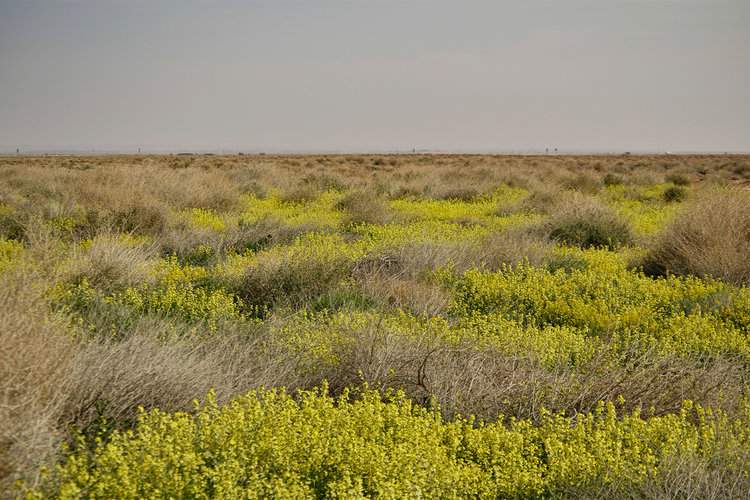ZARQA GOVERNORATE, Jordan; ERBIL, Iraq; QAMISHLI, Syria — Within the darkness of a small, windowless room, half a dozen falcons have been perched on low wood stools, their eyes lined with leather-based hoods. Crouching on the sand-covered ground, their caretaker gently unhooded a number of the birds, which stretched their wings cautiously.
For many of them, free flight was a distant reminiscence.
A lot of the falcons had just lately been rescued from traffickers by Jordanian authorities and positioned within the care of the Royal Society for the Conservation of Nature (RSCN), the primary conservation NGO in Jordan, which runs a raptor rehabilitation middle within the desert. The RSCN carefully controls entry to the middle, and Mongabay is withholding its precise location to attenuate the chance of somebody concentrating on the birds.
“The middle could be very distant, and we’ve had instances the place folks present up there with weapons in the midst of the night time,” Nashat Hamidan, a conservationist with the RSCN who helped set up the rehabilitation middle, informed Mongabay from his workplace on the RSCN’s Amman headquarters in Could. “Some house owners will do something of their energy to get them again,” he added, referring to the falcons, a few of which might promote for tens of hundreds of {dollars}.
When Mongabay visited the middle in March 2022, it held round half a dozen raptors. Most had been seized at borders or airports, both from visiting falconers who have been bringing them to Jordan to hunt however didn’t have the correct documentation, or from traffickers attempting to smuggle the birds by the nation.
Falcons seized by customs typically keep within the RSCN’s take care of a number of months or years till a courtroom points a call to both return them to their house owners or hand them over to the RSCN completely.
The latter choice normally marks the beginning of an extended and dangerous rehabilitation course of. For weeks, RSCN employees train the falcon to overlook the human hand that just lately fed it. Then comes the discharge into the wild.
“After we do a falcon launch, it’s like being on a CIA mission,” Hamidan mentioned. “We head out to the discharge web site at daybreak, ensuring nobody is aware of the place we’re going, even our personal employees. We do all this in order that nobody is aware of the place the falcons are launched, so folks don’t attempt to recapture them.”
Falcons are in excessive demand in rich Gulf international locations like Saudi Arabia, the United Arab Emirates and Qatar. Falconry, the follow of looking with falcons, has lengthy been a well-liked sport there. Wild-caught peregrine (Falco peregrinus) and saker (F. cherrug) falcons are particularly wanted by falconers, who prize them for his or her looking abilities.
However wild falcon populations have declined in lots of elements of the world over the previous century attributable to varied elements, together with pesticide use, habitat degradation and overhunting. Saker falcons are actually globally endangered in line with the IUCN Pink Record, and sooty falcons (F. concolor) and red-footed falcons (F. vespertinus) are critically endangered across the Mediterranean. Fueled by rising oil wealth within the Gulf because the Nineteen Eighties, falcon trapping undoubtedly performs a task within the birds’ demise: a 2022 IUCN report discovered that trapping and looking threatened greater than 40 species of raptors nesting across the Mediterranean, making it the commonest risk to birds of prey within the area.
To counter this decline, the worldwide commerce in wild falcons has lengthy been restricted by the Conference on Worldwide Commerce in Endangered Species of Wild Fauna and Flora (CITES). Falconers should purchase captive-bred birds as a substitute, however many nonetheless hunt down wild-caught falcons, that are seen as higher hunters. And regardless of worldwide efforts to guard them, trafficking stays prevalent within the Center East and notably in Syria, the place 12 years of conflict and financial disaster have made the falcon enterprise extra profitable than ever.
The capital of falcons
Falcon trapping developed on a big scale in Syria within the Nineteen Eighties attributable to rising demand from the Gulf. Native trappers based mostly in Syria’s northeast, a flat and semiarid area significantly appropriate for looking falcons, informed Mongabay their enterprise emerged out of interactions with falconers from the Gulf, who taught them how one can catch the birds.
This data rapidly unfold, and inside a couple of a long time Syria had change into a regional hub of the falcon enterprise, regardless of being a celebration to CITES. By 2009, the Syrian metropolis of al-Rahiba, identified regionally because the “capital of falcons,” hosted at the very least 170 folks concerned in falconry or falcon buying and selling. Catching wild falcons is against the law in Syria, in addition to different international locations within the area, however penalties have been weak and poorly enforced. Authorized loopholes meant merchants have been allowed to deal birds within the open for the home market, though exporting them was formally outlawed.
Ornithologists who labored in Syria within the 2000s recall that looking was already highly regarded by then. “Everybody within the countryside was concerned in falconry — both in trapping, coaching or smuggling falcons,” mentioned Hamidan as he recalled his go to to Sabkhat al-Jabbul Nature Reserve, a Ramsar web site. “In a single village, we noticed a bunch of 40 hunters on bikes following a falcon! As soon as, we even needed to forestall our information within the reserve, a conservation information, from tipping off his pals when he noticed one.”
This looking frenzy was pushed by the excessive value folks have been keen to pay for falcons. The commerce was so profitable that some Syrian trappers even began looking overseas, following the birds to their nesting grounds in Central Asia. To at the present time, gyrfalcon (F. rusticolus) poachers are nonetheless nicknamed “Syrians” in Russia, a reference to the prevalence of Syrian trappers who pioneered the follow within the nation.
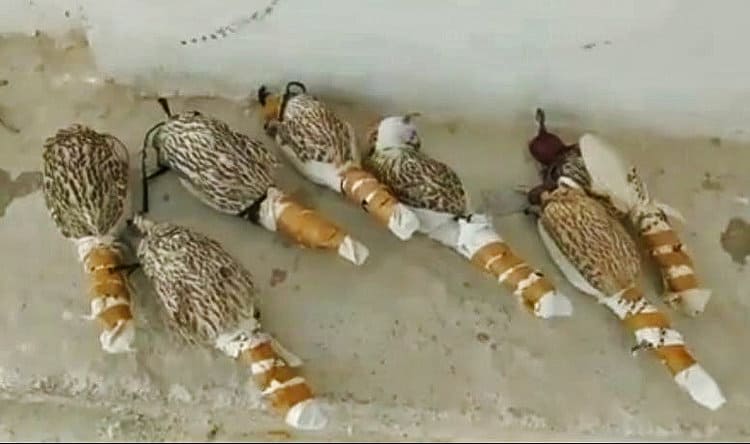
Hovering costs
When the Syrian civil conflict began in 2011, it affected the native falcon business together with the remainder of society. In sure elements of Syria, hunters may now not journey to their most well-liked looking grounds. Some areas turned too harmful as a result of presence of assorted militias; others have been closely mined.
“The disaster affected everybody, hunters included. Trappers couldn’t go to areas the place there was preventing and safety points,” Fayez al-Hassouni, a chicken dealer based mostly in northeastern Syria, informed Mongabay in April. Trafficking networks have been additionally disrupted: Rahiba, the falcon capital, continues to be managed by the Syrian authorities, whereas many looking grounds are in areas managed by non-state teams, and commerce between these zones is treacherous and requires costly bribes to navigate.
Regardless of these challenges, falcon poaching continued all through the conflict, and even elevated.
“The worth of birds vastly elevated, so quite a lot of new folks entered this area and began trapping,” al-Hassouni mentioned. Struggle and worldwide sanctions have plunged the nation into deep financial disaster. One U.S. greenback, price 50 Syrian kilos earlier than the conflict, now trades on the black marketplace for 12,000 kilos as of July 2023.
Since falcons are purchased in {dollars} by the ultimate patrons within the Gulf, their worth skyrocketed lately. In line with Abu Saddam, a hunter from northeastern Syria with 20 years of expertise catching falcons, this has led to an unprecedented surge in trapping. “Over the previous 4 years, the variety of folks trapping falcons actually elevated attributable to good costs,” he informed Mongabay, requesting we use solely his given identify attributable to safety issues. “Even individuals who don’t know something about looking began to exit and check out their luck.”
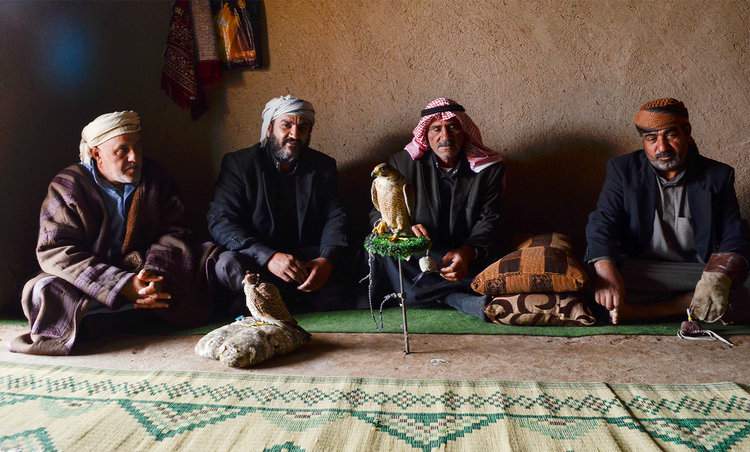
When Mongabay met Abu Saddam in April in his native village of al-Tash, he confirmed us a younger peregrine falcon caught a couple of days prior. He mentioned he anticipated the chicken would promote for round $10,000. On this distant village, the place most households dwell in modest mud-brick homes and make a meager dwelling from farming and herding, every catch is an sudden blessing for all the neighborhood. Trappers normally hunt in teams of 5 to 10 or extra, splitting looking bills in addition to earnings.
The worth of a chicken varies broadly relying on its measurement, age and species, but it surely normally represents a fortune regionally. Ali, one other hunter based mostly within the south of the nation who requested Mongabay use solely his given identify citing safety issues, informed Mongabay that 14 falcons have been caught final fall in his village. Every offered for an excellent value, starting from $1,600 to $30,000.
However it’s not nearly cash. Through the years, what began as a profitable enterprise has change into an integral a part of the area’s heritage, a ardour transmitted from father to son that falcon hunters see as a solution to reconnect with nature. The exercise can also be intimately linked to a sure imaginative and prescient of masculinity, related to resilience and the flexibility to outlive within the desert.
“It’s an dependancy that runs deep in our veins,” Abu Saddam mentioned. “Even when the birds didn’t promote for an excellent value, I’d nonetheless hunt them.”
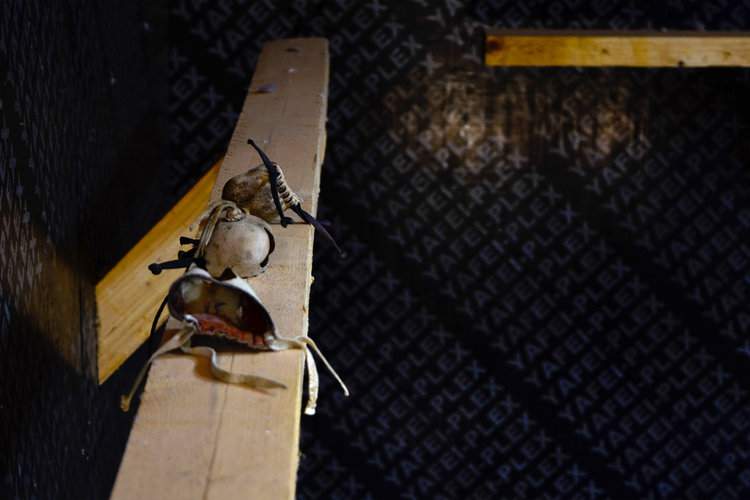
A regional downside
As trapping intensifies, buying and selling networks throughout Syria have reconfigured to adapt. Hunters and merchants informed Mongabay a lot of the falcons are nonetheless despatched to Rahiba, though they need to now cross a number of checkpoints to enter government-controlled areas. From Rahiba, they’re despatched by aircraft to the Gulf by way of Lebanon or smuggled by neighboring Iraq and Jordan. Different routes have additionally emerged: some merchants based mostly in northeastern Syria ship the birds on to neighboring Iraq after which on to the Gulf.
Rampant trafficking in Syria has regional implications, since Jordan and Iraq are each overland transit routes for Syrian-caught falcons. However they’re additionally trapping hubs themselves, and the 2 international locations wrestle to manage poaching in their very own territory.
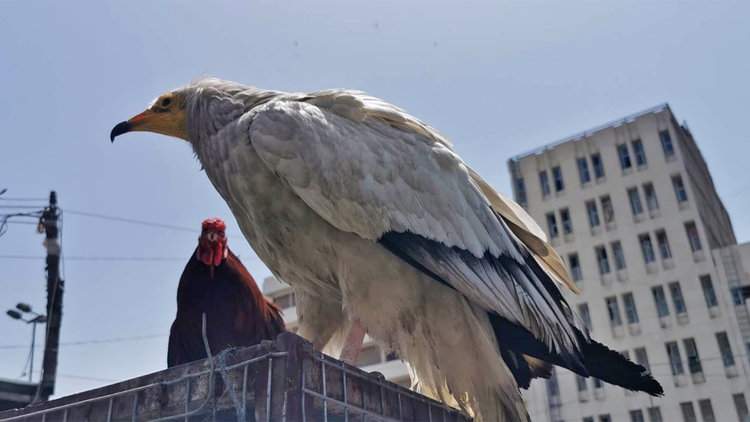
Jordanian trappers largely hunt within the nation’s japanese Jaffar Desert, the place authorities have a restricted attain. “There isn’t any police in these areas, there are not any rangers,” Fares Khoury, the founder and president of Jordan BirdWatch, informed Mongabay. “These areas are identified for having quite a lot of trapping happening, however nobody goes and talks to those folks.”
Khoury spent a number of weeks within the Jordanian desert with trappers to check their looking practices. He mentioned poaching has taken a noticeable toll on falcons and different raptors, as he reported in a 2020 paper based mostly on his time with the trappers.
“It’s completely uncontrolled. We don’t even have correct numbers on what number of are being trapped in Jordan and within the area,” Khoury mentioned. “And it’s additionally encouraging folks to entice different birds. The lanner [F. biarmicus] and barbary [F. peregrinus pelegrinoides] falcon. And these have gotten very uncommon, and even extinct in Jordan.”
In Iraq, falcon buying and selling is a booming enterprise going down nearly within the open. In cities like Baghdad and the northern provincial capitals of Duhok and Sulaymaniyah, protected wildlife is offered in open-air markets, together with raptor chicks and endangered Egyptian vultures (Neophron percnopterus), which inexperienced hunters typically confuse with falcons.
Like Syria, divided by 12 years of battle, Iraq is reeling from a long time of conflict and political instability. Wildlife safety is hardly a precedence, and the logistical challenges of controlling distant corners of the nation, the place native elites wield extra energy than the central authorities, are immense.
However with trappers in Iraq and Syria keen to edge into minefields to catch falcons, higher regulation enforcement doubtless gained’t be sufficient to maintain poachers in test. As massive chunks of the area’s inhabitants spiral into poverty, the one sensible solution to sort out trafficking within the coming years could also be on the demand facet: cracking down on rich falconers who, for the love of those birds, are keen to danger driving them to extinction.
Citations:
Khoury, F., Makarevicz, C., Al-Hmoud, A.-R., & Mithin, S. (2020) The unlawful trapping of enormous falcons in Jordan. Sandgrouse, 42(2), 239-247. Retrieved from https://www.researchgate.internet/publication/353841157_The_illegal_trapping_of_large_falcons_in_Jordan
Westrip, J. R. S., Burfield, I. J., Allen, D. J., & Numa, C. (2022). The Conservation Standing of Breeding Raptors within the Mediterranean. IUCN, Málaga, Spain. Retrieved from https://www.iucn.org/websites/default/information/2022-11/raptors-mediterranean-2022_compressed.pdf
This text by Lyse Mauvais was first revealed by Mongabay.com on 10 August 2023. Lead Picture: A rescued falcon, doubtless a peregrine (Falco peregrinus) or a captive-bred hybrid thereof, on the RSCN raptor rehabilitation middle in Jordan in March 2022. Picture by Lyse Mauvais for Mongabay.
What you are able to do
Assist ‘Preventing for Wildlife’ by donating as little as $1 – It solely takes a minute. Thanks.
Preventing for Wildlife helps accredited wildlife conservation organizations, which spend at the very least 80 p.c of the cash they elevate on precise fieldwork, quite than administration and fundraising. When making a donation you’ll be able to designate for which kind of initiative it needs to be used – wildlife, oceans, forests or local weather.

